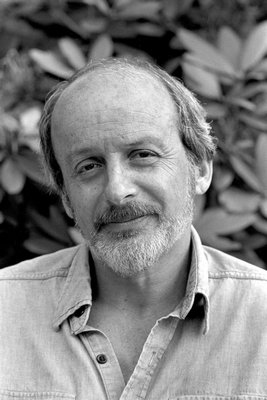
E.L. Doctorow, the critically acclaimed and innovative author known for such popular works as “Ragtime,” died on Tuesday in Manhattan at the age of 84, due to complications of lung cancer.
He was a prolific author, having written a dozen novels in addition to short fiction, a play, literary criticism, and political commentary.
Mr. Doctorow had a home in Sag Harbor, where he spent about half of the year and was an important part of the local community.
Bruce Wolosoff, a composer who lives on Shelter Island, said he had the honor of spending just one evening with Mr. Doctorow, at the Sag Harbor home of artists April Gornik and Eric Fischl, where they discussed writing and music. “He was such a charming, modest, intelligent, thoughtful, unassuming, gentle, kind person. It’s very sad to lose somebody like that—he touched my life.”
He added, “There are these giants walking among us, and we take them for granted, and when they are gone we really realize who they were.”
Mr. Doctorow told The New York Times in 2009 that he often wrote at his Sag Harbor home: “You want peace and quiet and to be near the water at times,” he said.
Mr. Doctorow started writing seriously after his discharge from the U.S. Army while he supported his family with odd jobs. He published his first novel, “Welcome to Hard Times,” in 1960, and his career expanded into the publishing world where he became editor in chief and, eventually, the publisher, at Dial Press.
In 1969, he left that work to complete his politically charged novel “The Book of Daniel”—it was an interpretation of the Ethel and Julius Rosenberg case.
Mr. Doctorow also was a teacher at both New York University and Sarah Lawrence College, where Joe Pintauro, a local playwright and close friend, said he followed him. “He has left a very definite mark—a very strong mark—on the world of literature and even on the world of theater,” he said.
“Ragtime,” written in 1975, was his most popular novel, and it was adapted for the screen as well as transformed into a Broadway musical. Often billed as historical fiction because it included real people and events, “Ragtime” highlighted Mr. Doctorow’s resistance to labels on his work, which was innovative and complex.
Last year, he told NPR, “The historical novel seems to me a misnomer, and many of my books take place in different places, in the Dakotas, or down South in Georgia or the Carolinas, so it’s just as valid to call me a geographical novelist as a historical novelist. I think of myself really as a national novelist, as an American novelist writing about my country.”
Mr. Doctorow is survived by his wife, Helen; a son, Richard; two daughters, Jenny Doctorow Fe-Bornstein and Caroline Doctorow Gatewood; and four grandchildren.
Ms. Doctorow Gatewood said on Wednesday: “My father was a great man and lived an extraordinary life. He was self-made and shared his superb intellect with the world. He is much loved and will be greatly missed.”